Interview by Dessislava Berndt with the Japanese boogie woogie
piano player and composer Keito Saito
Proofreading by Polina Georgieva
The International Jazz Festival in Bansko is one of the biggest summer musical events in Bulgaria and one of the foremost international cultural happenings in the Balkans.
Since its foundation in 1998 the festival has been held annually from August 8th to 13th in the small town of Bansko. Tickets for the concerts are free of charge for the public. Traditionally, the programme features styles and groups representing almost all jazz styles. During the festival week, jazz is also played on various smaller stages in the large resort complexes and restaurants.
Today we would like to present to you the Japanese boogie woogie musician Keito Saito who performed at the 2016 edition of the Jazz festival held in the Bularian mountains.
Mr. Saito, what is the meaning of music and especially of boogie woogie for you?
I think for me music is the only universal language. Through music I can share my feelings with people from various countries, and tell them and make them feel the thoughts which cannot be expressed in words.
Boogie Woogie contains the scream of people who had been mistreated and it has developed through a history full of of sadness.
I believe this is the most important feeling when I play boogie woogie or blues. I would rather not spend the music life smoothly, and the encounter with the boogie woogie made myself as a musician.
Although it is important to inherit the music technically, I also would like to inherit it without forgetting the history and the minds of great players.
You studied music in Luxembourg. Now you work and live in Japan. How has the environment affected your personality as a musician?
I moved over to Luxemburg at the age of 15, and it was an experience of feeling the cultural difference and realizing that I am Japanese. I had studied abroad before becoming an adult, so I could fit into the European atmosphere smoothly.
My master of classical music is from Luxemburg, and my master of boogie woogie is Mr. Axel Zwingenberger from Germany.
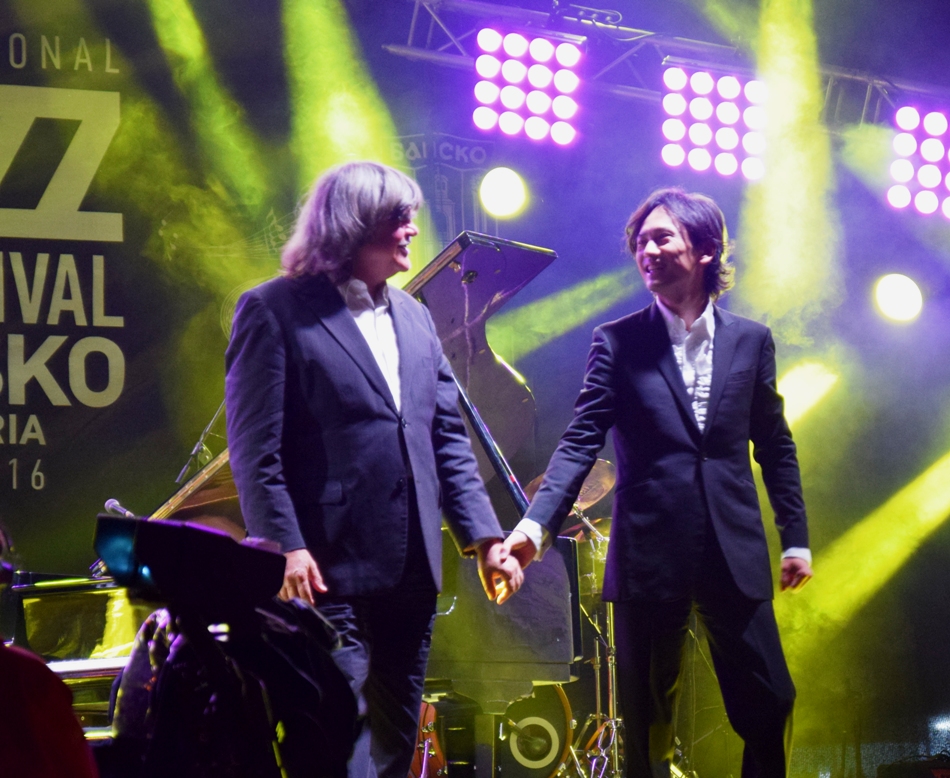
Keito Saito and Axel Zwingenberger at the International Jazz Festival Bansko,
Photos: desenze
Everyone, who had taught me the spirits- as a musician, is from Europe. Through such circumstances, I am a really unique musician in Japan.
In 2016 you performed together with Axel Zwingenberger at the International Jazz Festival in Bansko. What are your impressions from Bansko Jazz, Bulgaria and the Bulgarian people?
I first visited Bulgaria in 2014 for the Bansko Jazz Festival with Axel, and then I felt that the nature was rich and beautiful, and I was impressed by the people listening to our music very enthusiastically, with lots of interest.
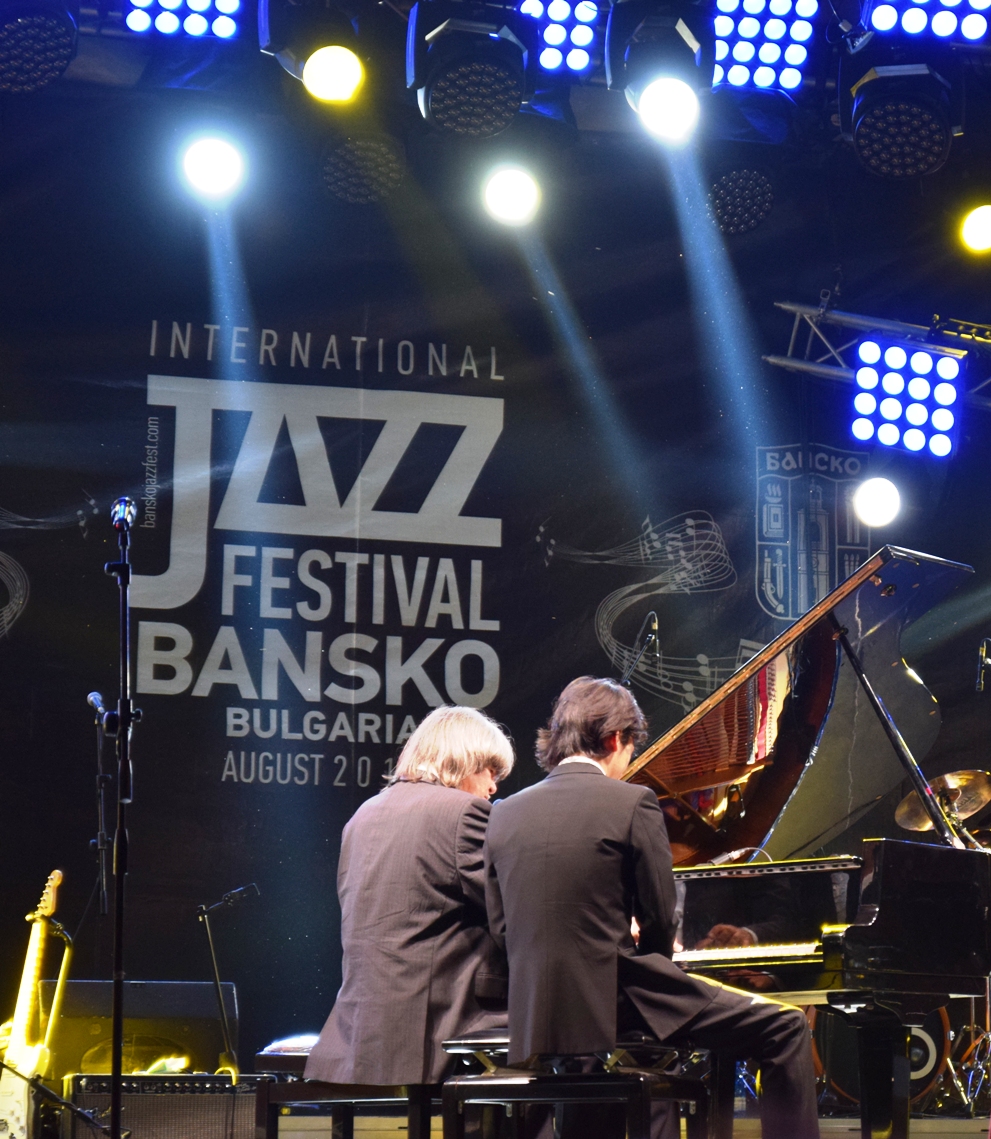
Keito Saito and Axel Zwingenberger at the International Jazz Festival Bansko,
Photos: desenze
Also, I have a Bulgarian friend – Vasko Vassilev. He is a great musician, as well as a good friend of mine, and we are like a family. Bulgarian people whom I had met thorough Vasko are all nice. Bulgarian food is really delicious and I am always looking forward to visiting Bulgaria, which is a special country for me.
For you, what was the most surprising experience working with other
musicians?
The same instrument can be completely different when the performer changes. The same piece of music can be completely different when the performer changes. I think it is because it shows the life of the person. Also, as a composer it is a pleasure for me when someone plays my original composition.
What is the source of your inspiration?
The source of inspiration for me are things in the daily life, such as meetings with and farewells to people, the beauty of nature, laughter of children, and such.
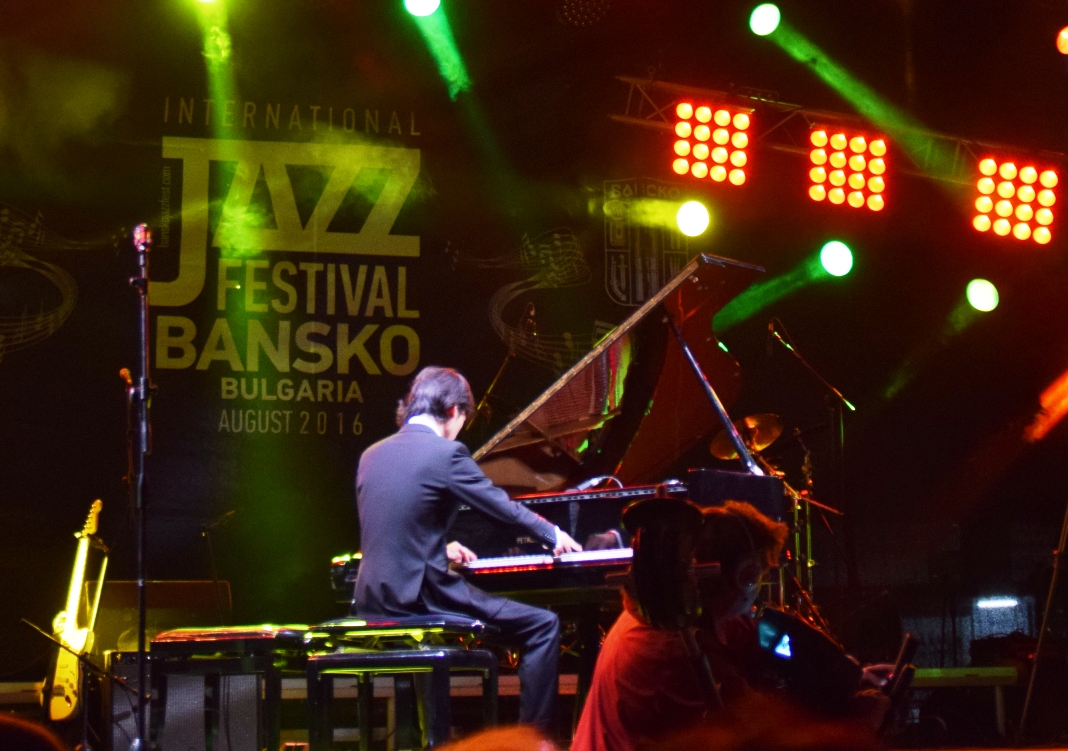
Keito Saito at the International Jazz Festival Bansko,
Photo: desenze
What are you dreaming about?
To play the piano in front of my (future) grandchild (grandchildren).
What is the greatest satisfaction for you as an artist and your biggest challenge?
For the never- ending journey of music, life can be the biggest challenge. I feel satisfaction when I release new works and when I end a tour, but they are only a checkpoint in the long life as a musician. When I compose music, it is not for getting an award or because I am told to do so in order to release many records.
I compose music when it comes from within. Therefore, when I create music, when I play improvisation with Axel, I feel the greatest satisfaction.
Vasko is a great musical partner, so he understands my compositions and makes my works great ones. In such circumstances, I feel the greatest joy and satisfaction as a composer.
What is the most important thing people should know about you?
My works remains even after I die. When those who listen to my music and they can enjoy the music no matter where he/she is from or the musical genres, I can be anyone.
Would you please tell us something about your current and future projects?
Axel and I do a concert tour in Japan and in Europe every two years. I would like to continue spreading the joy of boogie woogie throughout the world.
‘Viano’ a unit with Vasko, has travelled Bulgaria, Spain, Poland, and Japan for concerts, and has already released 3 CDs. We are planning to do a tour in Europe and Japan next year too, and to release a new CD.
‘Les Freres’, a unit with my brother, is in the middle of our national tour in Japan. As a musician, I would like to travel all over the world, and as a composer, I would like to compose a lot of new pieces and release a lot of works.
Keito Saito was born on November 18, 1978. He started playing the piano at the age of 6, and studied classical piano until the age of 17. He was accepted to Conservatoire de Musique de la Ville de Luxembourg when he was 15 and returned to Japan at the age of 17.
Keito learned to play and master boogie woogie piano -which he discovered in Europe- on his own. He performed with world-famous German Boogie Woogie pianist Axel Zwingenberger in the spring of 2000 when he was 21.
After returning to Japan, he has become an active trailblazer in Boogie Woogie piano, devoting his talent to bringing Boogie Woogie to the mainstream on the Japanese music scene. He was the first Japanese to be ever invited at the International Boogie Woogie Festival, and has done many performances abroad.
In November 2008, Keito released his first solo album “Boogie Woogie Far East”(Universal Music) and it became a historical step of Japanese Boogie Woogie scene. In April 2012, he has released a live album with Axel Zwingenberger called “THE JOY OF BOOGIE WOOGIE/LIVE” (Quatre Mains Records. As a successor to classical Boogie Woogie and a pianist of the next Boogie Woogie generation, he plays a wider field of activities as a leader of Asian Boogie Woogie scene including his activity with Haruomi Hosono. He has attracted a great deal of attention from music fans in Japan and abroad with his excellent sense of rhythm and improvisation.
While performing an active role as a boogie woogie pianist, he formed VIANO with Vasko Vassilev (Violin / Bulgaria) in 2013. The meaning of ‘Viano’, ‘the beautiful harmony of piano and violin’ became their concept. Keito composes the music, arranges the pieces with Vasko, and the duo perform by themselves. The boogie woogie spirit of Keito reflects his passionate and lyrical piano playing style, and with Vasko’s interpretation of music- bursting with originality and sensitivity startling violin performance- they produce universal appeals of their own music and spread radical and vivid musical experience. The ‘novel music’ by the duo in the same generation caught the world’s attention from its formation. They have performed in Japan and Europe including Spain, Bulgaria, and Poland and have received a storm of applause.
Keito has also formed Les Frères with his brother Moriya Saito in 2002 and pursues the possibilities of one piano with four hands. Their innovative yet delicate playing style (four-handed piano), their original compositions which conjure the image of symphonies and instrumental sessions, as well as their attractive live performances, had made a phenomenon known as the “piano revolution”. As a composer his melodious, poetic, as well as narrative music has been used for theater and ballet, too. He has been steadily gaining experiences as a composer and there are many expectations for his future activity.

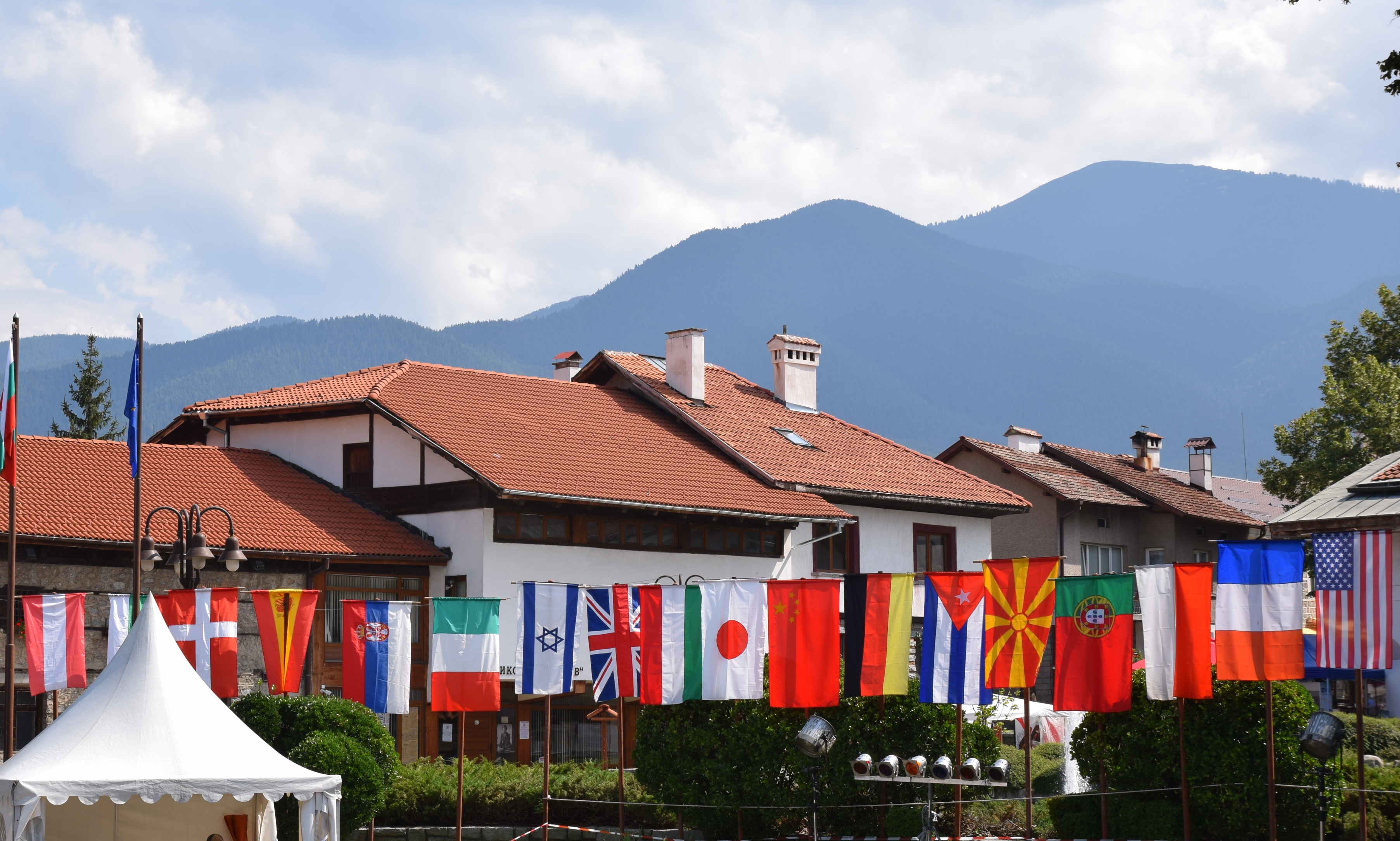
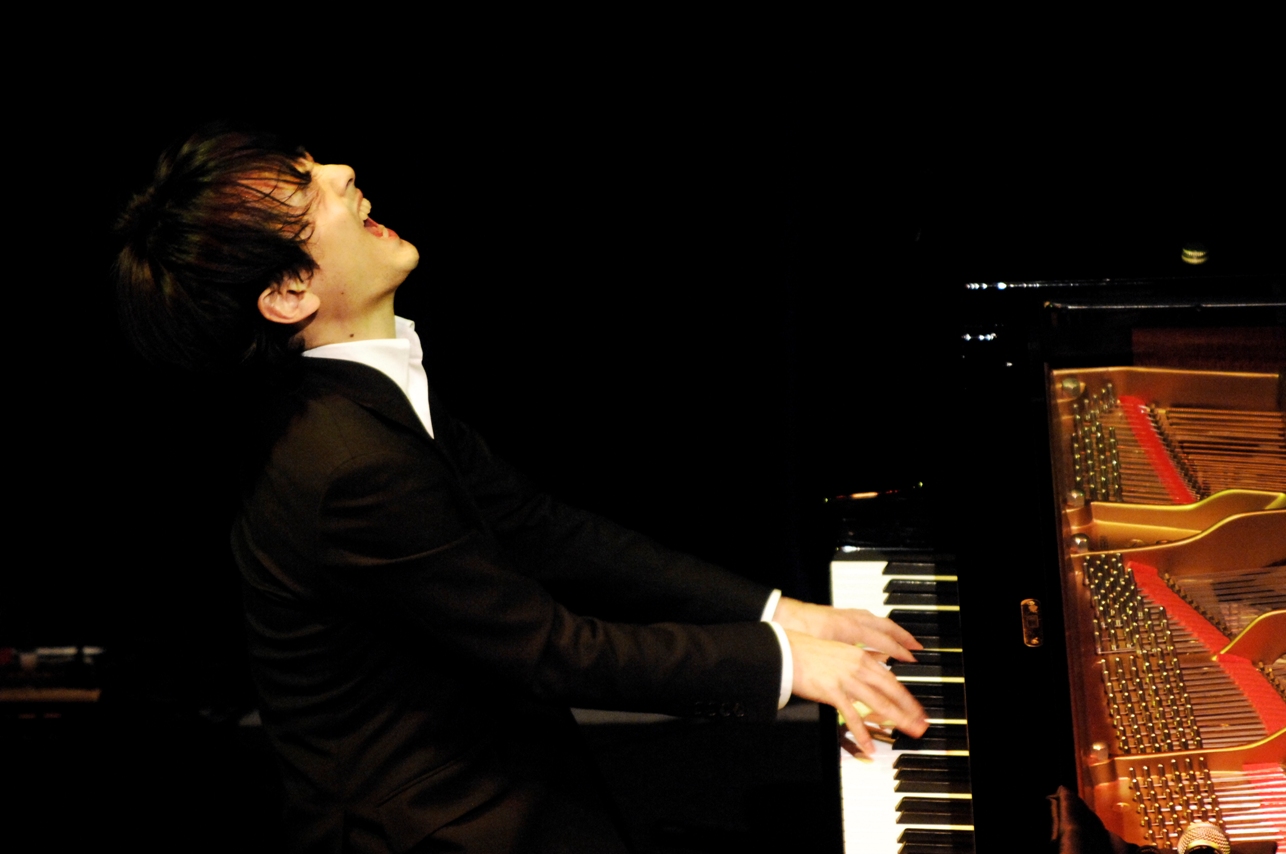
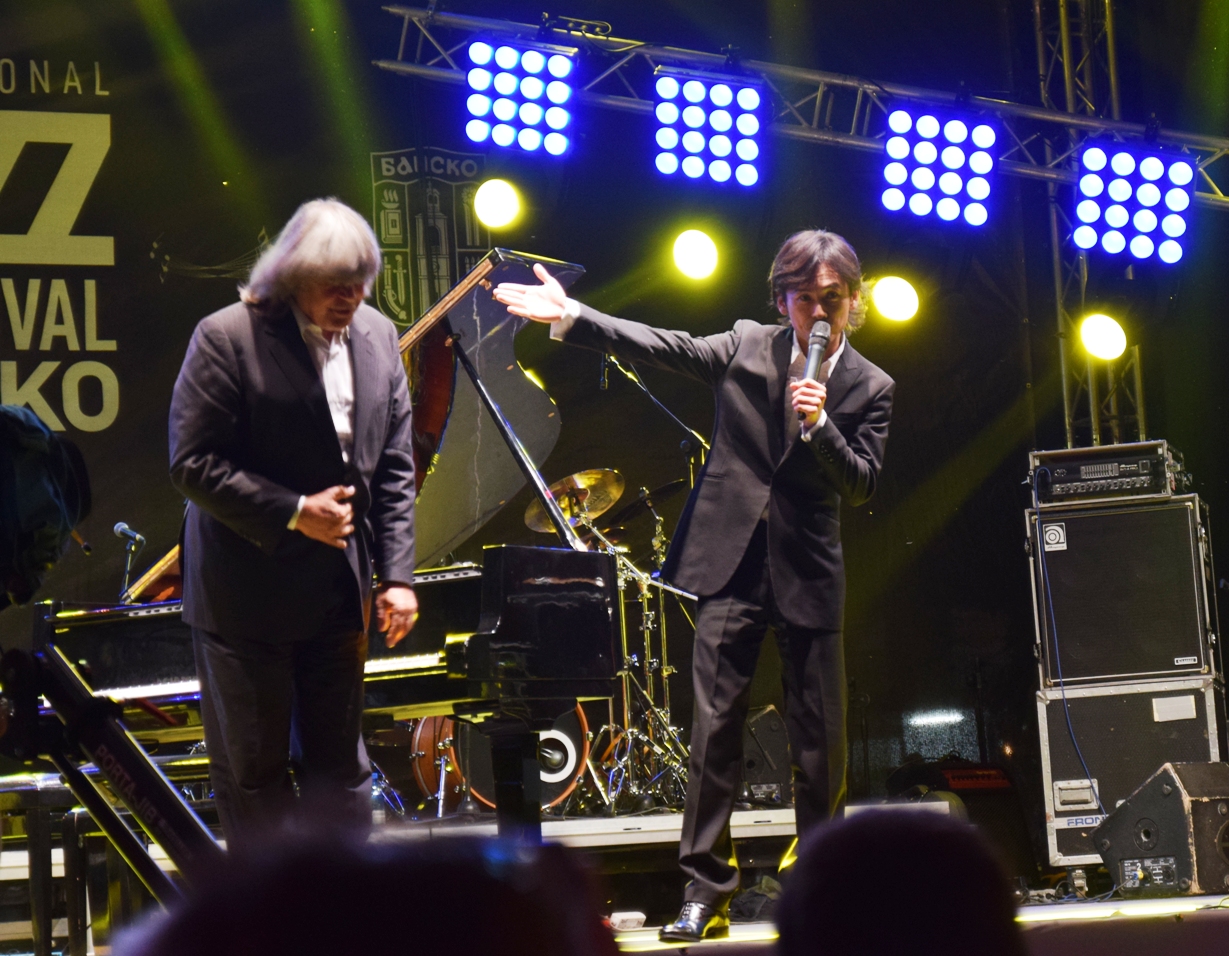
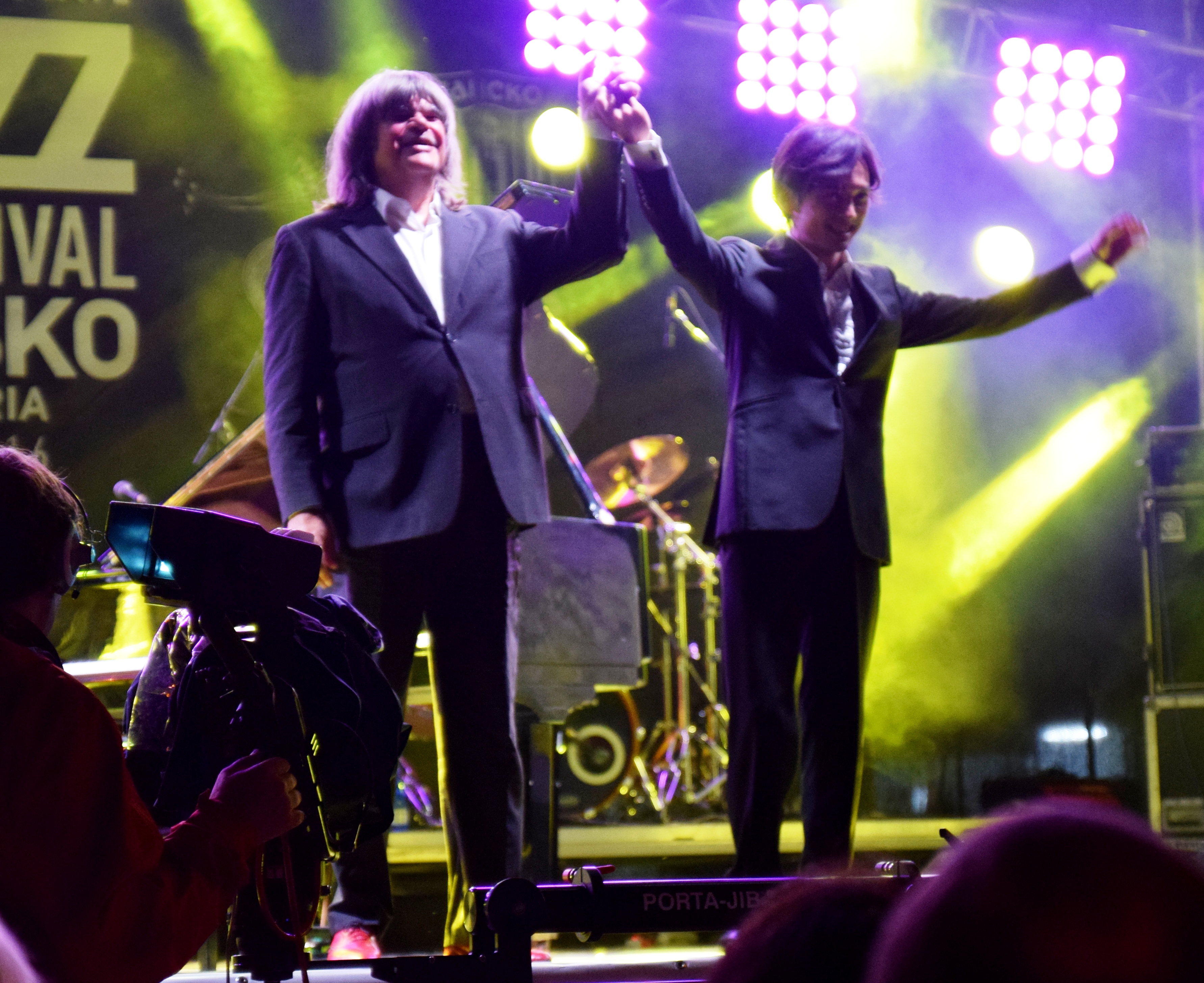
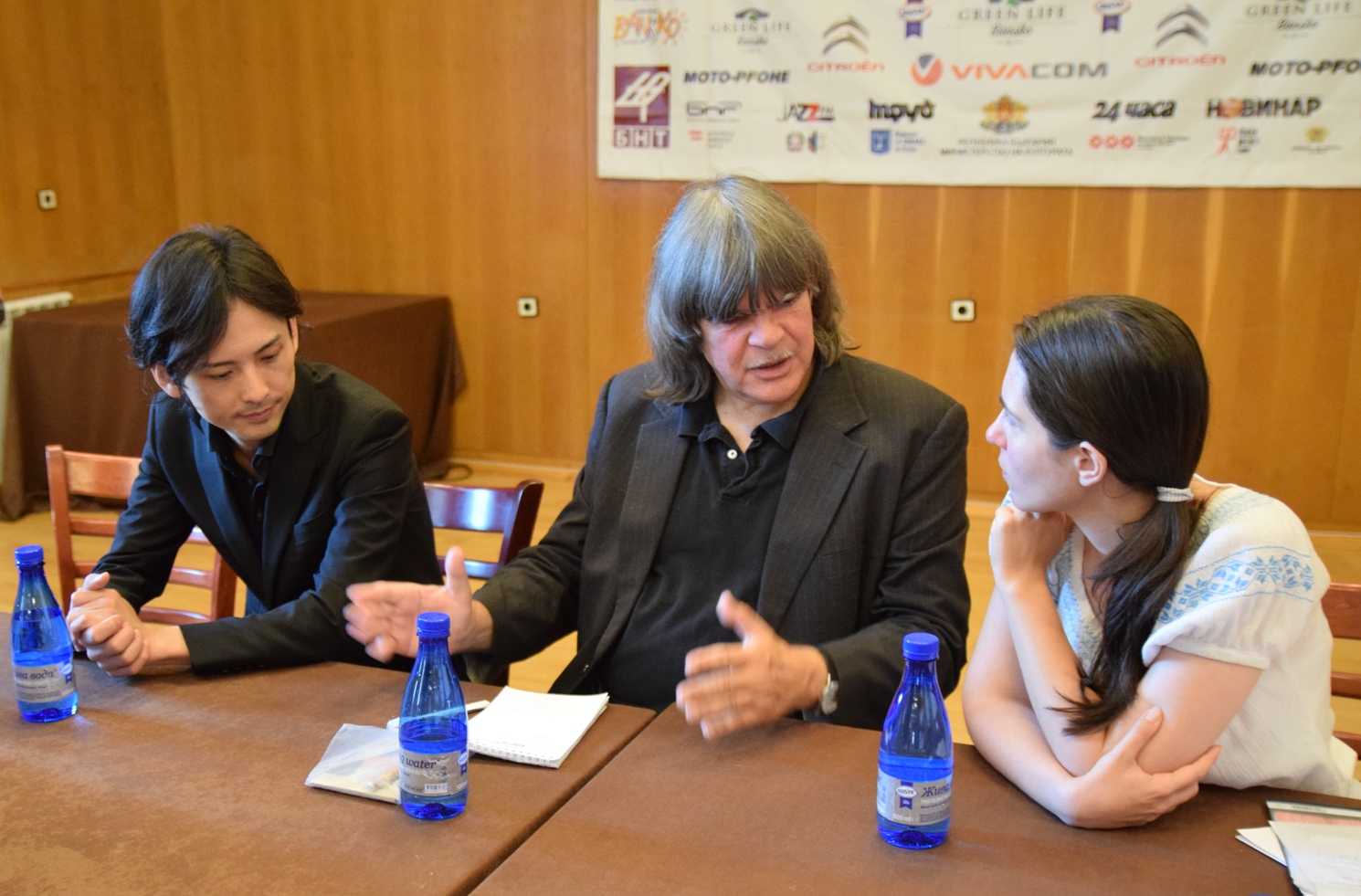
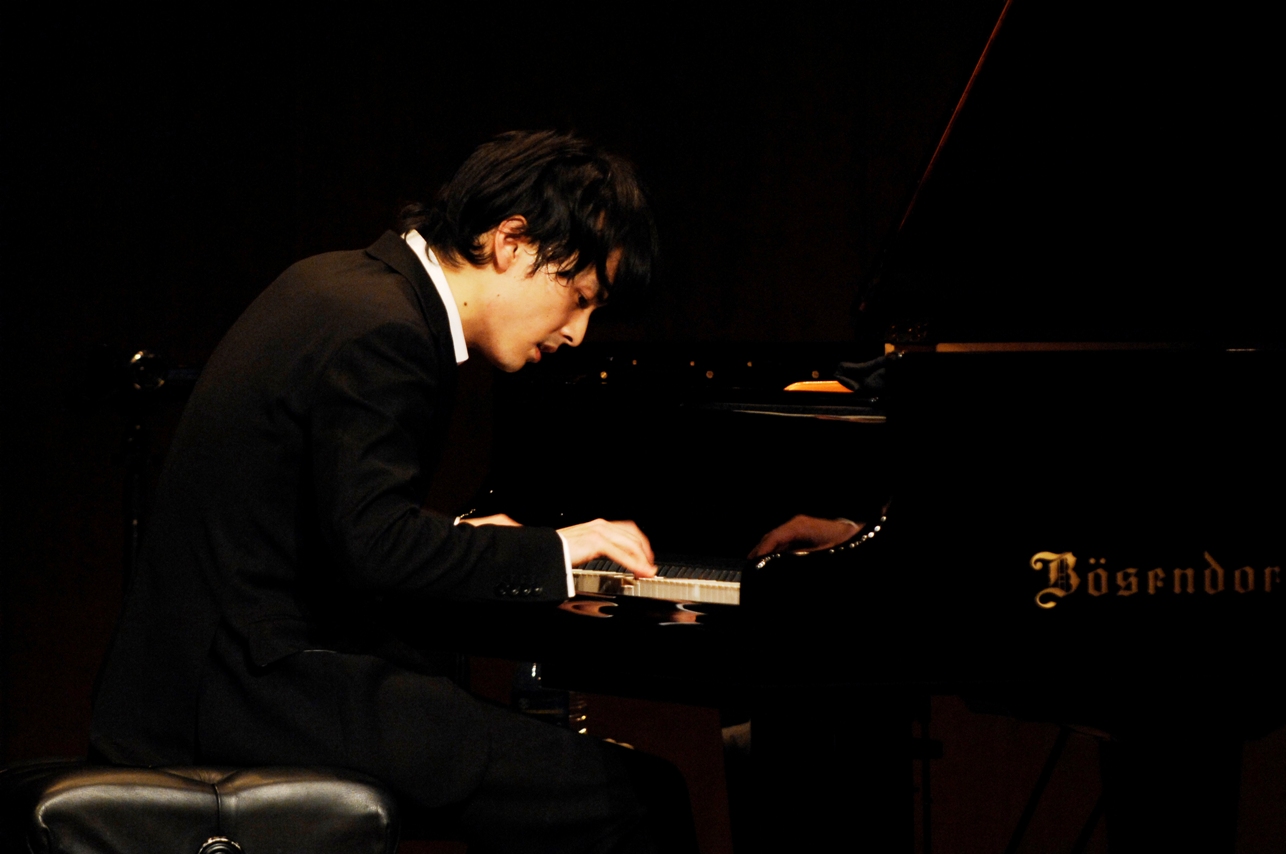
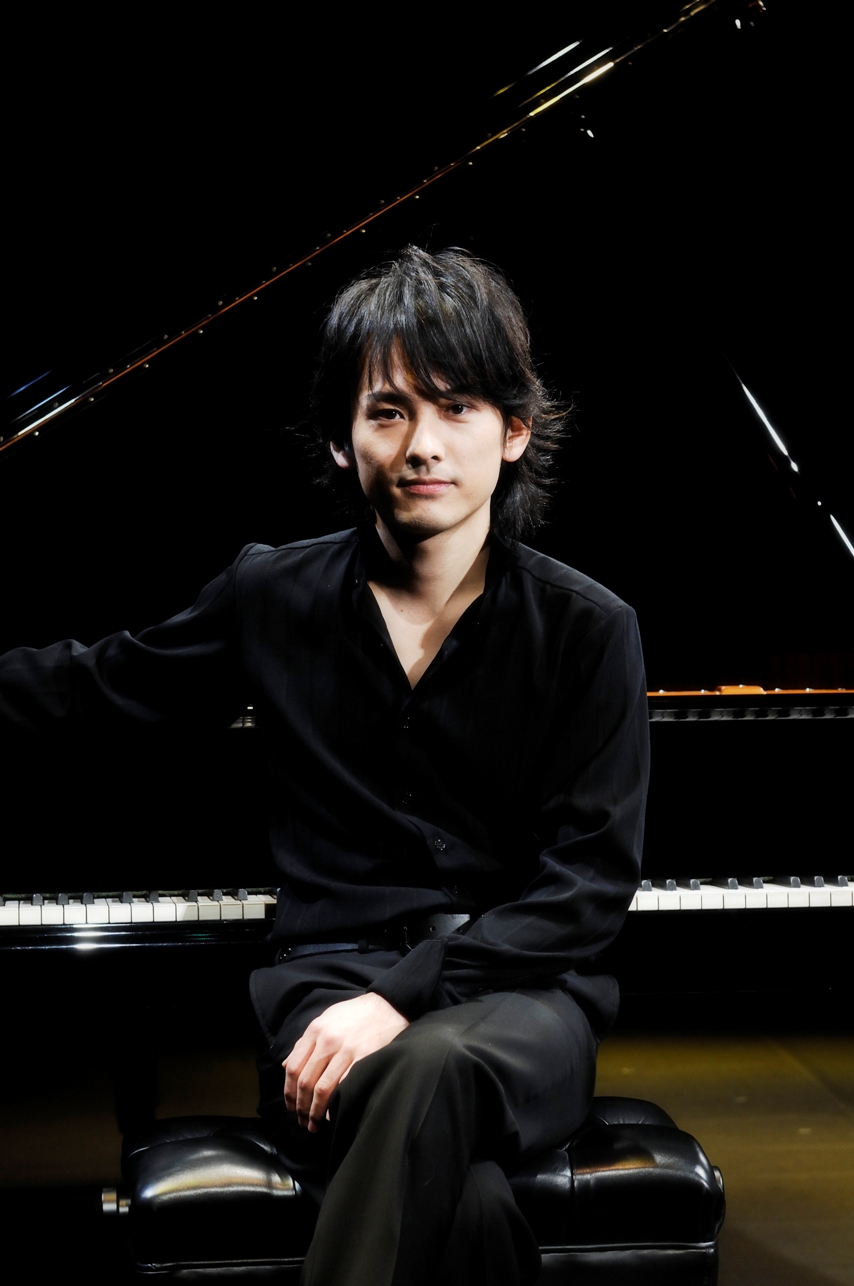










No comments so far ↓
Nobody has commented yet. Be the first!
Comment